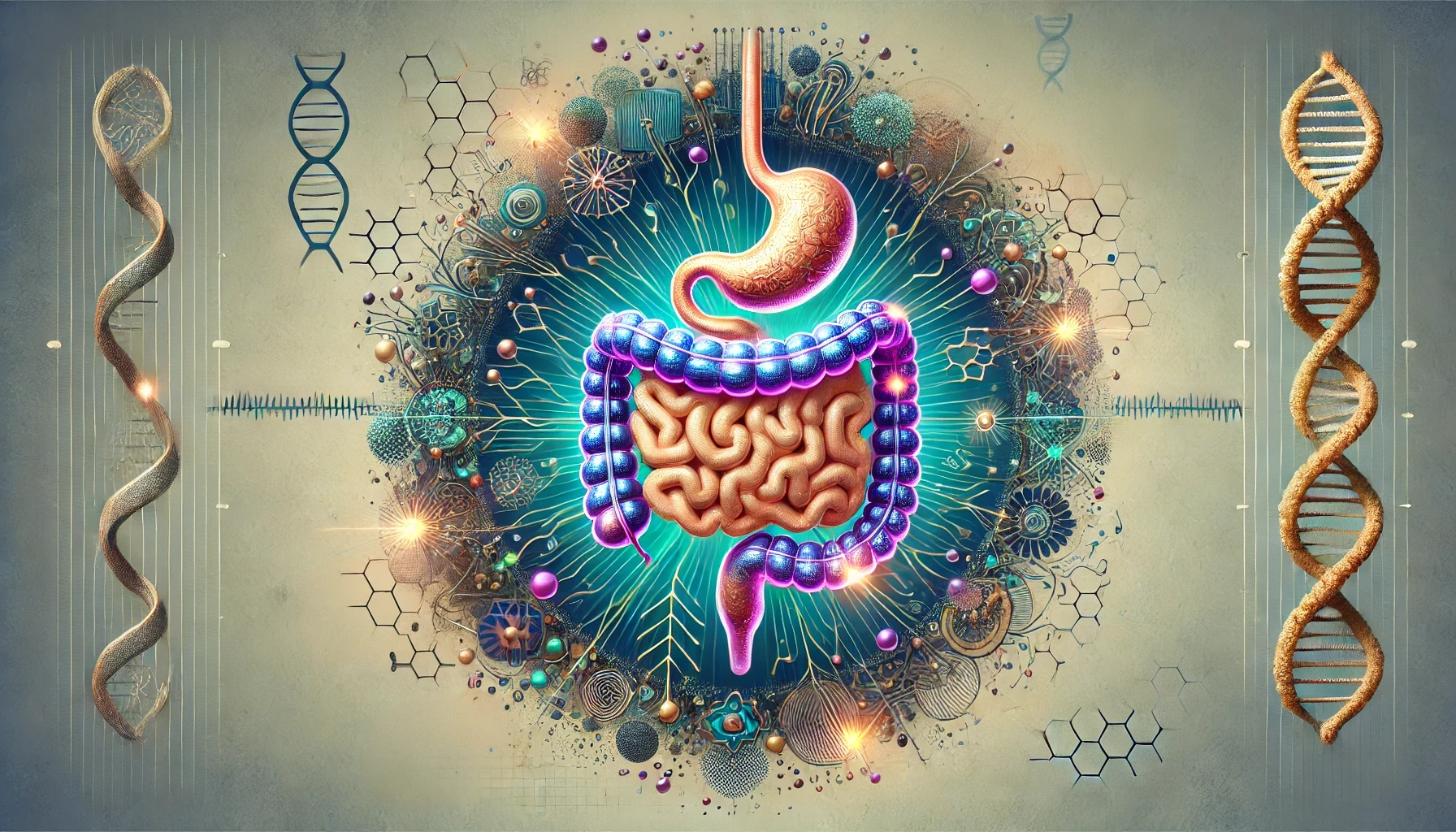The Gut-Brain Connection: Unlocking Your Path to Vibrant Health
Discover how your digestive system influences your mental well-being and overall health.
Why Your Gut is Your Second Brain
The Gut-Brain Connection: Unlocking Your Path to Vibrant Health
In today’s fast-paced world, you might find yourself juggling countless responsibilities while dealing with feelings of fatigue, brain fog, or digestive discomfort. What if we told you these seemingly unrelated issues might all trace back to one root cause: your gut? Welcome to the fascinating world of the gut-brain connection, where science meets self-care to help you reclaim your vitality and balance. Discover how the gut-brain axis benefits your overall health and learn actionable steps on how to improve gut health for better mood and mental clarity.
This post will unravel the mysteries of the gut-brain connection, empowering you with insights, actionable steps, and a deep understanding of how nurturing your gut can transform your physical and mental well-being. Let’s dive in.

What Is the Gut-Brain Connection?
The gut-brain connection refers to the complex communication network between your gut and your brain. This isn’t just metaphorical; it’s a physiological reality. Often called the “second brain,” your gut houses the enteric nervous system (ENS), a vast network of neurons embedded in the walls of your digestive tract. This system communicates directly with your brain via the vagus nerve and a cocktail of neurotransmitters and hormones.
But why does this matter? Your gut doesn’t just digest food; it influences your mood, cognitive function, and overall health. Embracing strategies for gut health and mental clarity, along with digestible tips for optimizing your microbiome, can lead to transformative wellness. An imbalanced gut can manifest as anxiety, depression, brain fog, or chronic fatigue. Conversely, poor mental health can disrupt digestion, leading to bloating, indigestion, or irritable bowel syndrome (IBS).
Signs Your Gut-Brain Axis Might Be Out of Balance
If the gut and brain aren’t communicating effectively, you may notice some of these common symptoms:
- Digestive Issues: Bloating, constipation, diarrhea, or frequent stomach discomfort.
- Mood Swings: Feelings of anxiety, depression, or irritability without a clear cause.
- Brain Fog: Difficulty concentrating, forgetfulness, or mental fatigue.
- Chronic Fatigue: Persistent low energy levels, even after adequate rest.
- Food Sensitivities: New or worsening reactions to foods that were previously tolerable.
These signs can be subtle but significant—and they’re your body’s way of asking for help.
The Science Behind the Gut-Brain Relationship
1. Microbiome: The Invisible Orchestra
Your gut microbiome is a bustling community of trillions of bacteria, fungi, and other microorganisms. These tiny inhabitants play a pivotal role in digestion, immunity, and even mental health. Here’s how:
- Serotonin Production: About 90% of serotonin—the “happy hormone”—is produced in the gut, not the brain.
- Neurotransmitters: Your gut microbes produce chemicals like dopamine and GABA, which regulate mood and stress.
- Immune Modulation: A healthy gut microbiome keeps inflammation in check, which is critical for mental and physical health.
2. Inflammation: The Silent Disruptor
When your gut lining becomes compromised (a condition often called “leaky gut”), harmful substances can enter your bloodstream, triggering systemic inflammation. Chronic inflammation has been linked to anxiety, depression, and neurodegenerative diseases.
3. The Vagus Nerve: The Gut-Brain Highway
This nerve acts as a two-way street, sending signals between your gut and brain. For example, a distressed gut can send “sos” signals to the brain, leading to mood changes or mental fatigue.
How to Support a Healthy Gut-Brain Axis
Now that you understand the gut-brain connection, let’s talk about how you can nurture it. The key is balance—balancing your microbiome, reducing inflammation, and ensuring smooth communication between your gut and brain. Here are six actionable steps to get started:
1. Eat Gut-Friendly Foods
Your diet is the foundation of gut health. Incorporate these foods to support your microbiome and reduce inflammation:
- Probiotics: Found in yogurt, kefir, sauerkraut, and kimchi, probiotics replenish healthy gut bacteria.
- Prebiotics: Foods like garlic, onions, bananas, and asparagus feed your good gut bacteria.
- Omega-3 Fatty Acids: Found in salmon, walnuts, and flaxseeds, omega-3s reduce inflammation.
- Fiber-Rich Foods: Whole grains, fruits, and vegetables promote regular digestion and feed beneficial microbes.
2. Manage Stress
Chronic stress can wreak havoc on your gut by altering its microbiome and increasing inflammation. Try these stress-reducing techniques:
- Mindfulness Practices: Yoga, meditation, or deep breathing can calm your nervous system.
- Physical Activity: Regular exercise supports both gut and mental health.
- Prioritize Sleep: Aim for 7-9 hours of quality sleep to allow your body and mind to recover.
3. Avoid Gut Disruptors
Certain habits and foods can damage your gut health, including:
- Processed foods and artificial sweeteners.
- Excessive alcohol or caffeine.
- Long-term use of antibiotics without probiotic support.
4. Hydrate Strategically
Water aids digestion, but don’t forget gut-soothing drinks like herbal teas (ginger, chamomile) or bone broth for added benefits.
5. Incorporate Fermented Foods
Fermented foods like kombucha, miso, and tempeh are rich in probiotics that help maintain a balanced gut microbiome.
6. Consider Professional Guidance
If you’re dealing with persistent issues, consult a healthcare provider or nutritionist specializing in gut health. Testing for food sensitivities or microbiome imbalances can provide valuable insights.
Relatable Real-Life Scenarios
Let’s bring these concepts to life with relatable examples:
The Busy Professional
Emily, a 35-year-old marketing manager, struggles with late-night stress eating and frequent bloating. After incorporating prebiotic-rich breakfasts (like chia pudding) and practicing deep breathing during her lunch breaks, she notices improved digestion and a calmer mind.

The Exhausted Mom
Sarah, a mother of two, feels perpetually fatigued and irritable. By swapping processed snacks for fermented foods and prioritizing her sleep, she experiences more energy and fewer mood swings.

The Fitness Enthusiast
Kayla, a 28-year-old fitness buff, struggles with post-meal fatigue. Adding omega-3-rich salmon to his meals and cutting back on sugary protein bars significantly boosts his energy levels.
Common Myths About the Gut-Brain Connection
Myth 1: “Gut issues are just digestive problems.”
Fact: Gut imbalances can affect your mental health, immune system, and even skin.
Myth 2: “Only probiotics matter for gut health.”
Fact: Prebiotics, fiber, and anti-inflammatory foods are equally crucial.
Myth 3: “You can fix your gut overnight.”
Fact: Healing your gut is a journey that requires consistency and patience.
FAQs About the Gut-Brain Connection
1. How long does it take to see results from gut-healing changes?
It varies, but many people notice improvements in digestion and mood within a few weeks of making consistent changes.
2. Can poor gut health cause anxiety or depression?
Yes, research shows a strong link between gut health and mental well-being. An imbalanced gut can disrupt neurotransmitter production, contributing to mood disorders.
3. Are supplements necessary?
Supplements like probiotics or omega-3s can be helpful, but it’s best to consult a professional for personalized advice.
Bringing It All Together
The gut-brain connection isn’t just a trendy topic; it’s a critical pillar of holistic health. By nurturing this connection, you’re not just improving digestion or mood—you’re creating a foundation for vibrant, long-lasting wellness.
At Gut Goddess Wellness, we’re here to guide you every step of the way. Explore our curated resources, recipes, and community support to start your journey today. Remember, every small change you make has the power to ripple through your life, bringing balance and vitality to your mind and body.
Join our GroupYour health is your power. Let’s embrace it together.
346 hits
- 7-Day Gut Reset Meal Plan
- About Us
- Benefits of Anti-Inflammatory Diets
- Blog
- Breakfast
- Common Gut Issues (e.g., IBS, Bloating)
- Community Forum
- Contact Us
- Desert
- Digital Downloads
- Dinner
- Drinks
- Free Downloads
- Free E-Book (20 Delicious Anti-Inflammatory Recipes for a Happier, Healthier Gut)
- Free Resources
- Gut Health 101
- Gut Health Kits
- Gut Health Quiz
- Gut-Friendly Foods & Spices
- Holistic Living Tips
- Meal Prep Tips
- Personalized Gut Health Plans
- Recommended Products
- Seasonal Wellness (e.g., holiday-specific tips)
- Self-Care Routines
- Snacks
- Success Stories
- The Gut Brain Connection
- Topics
- Webinars & Workshops
